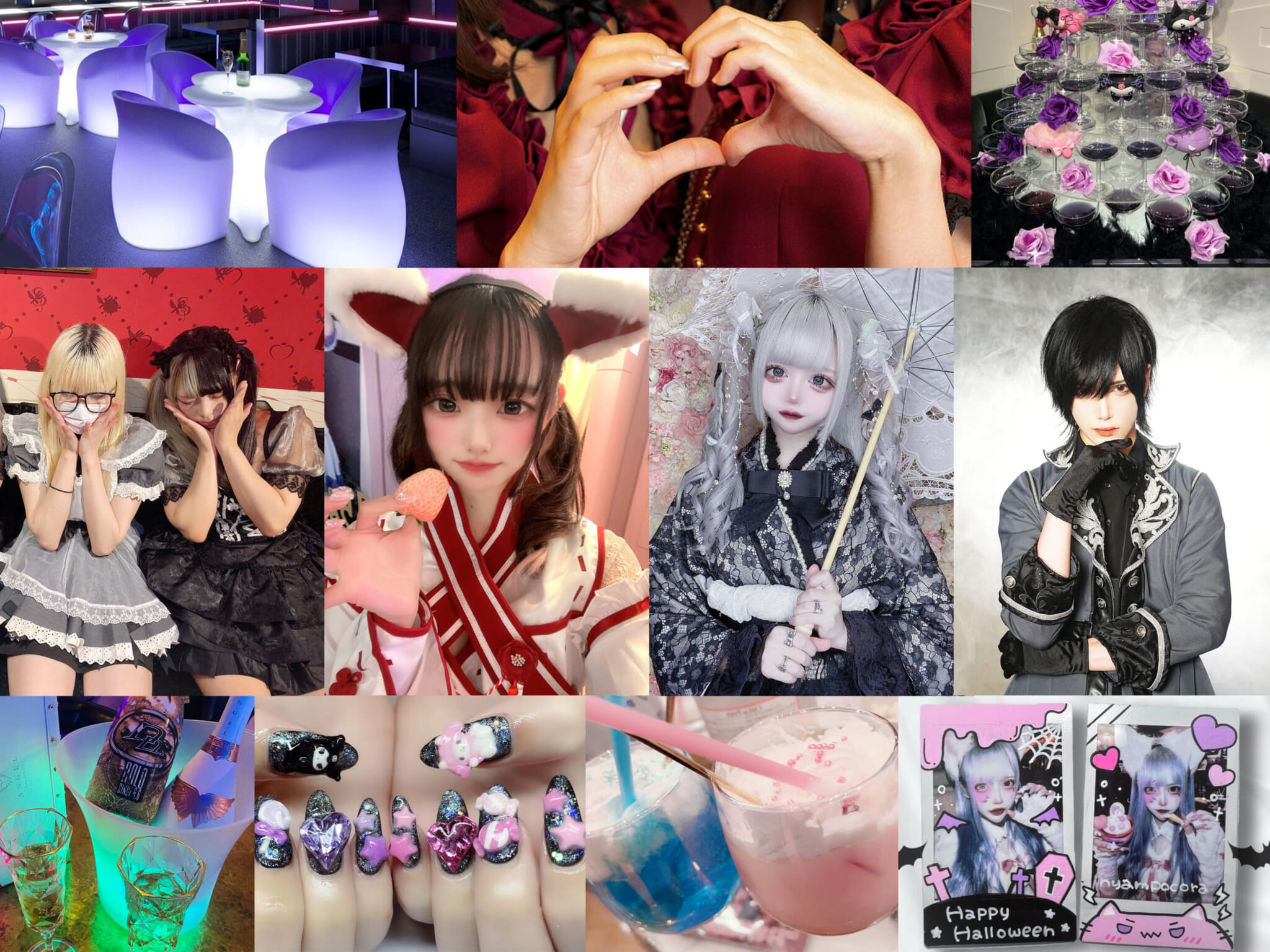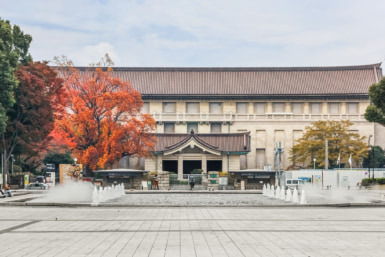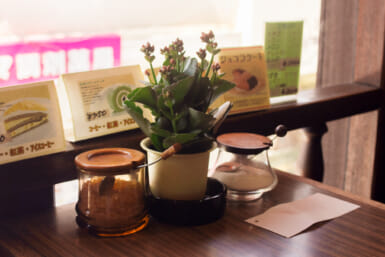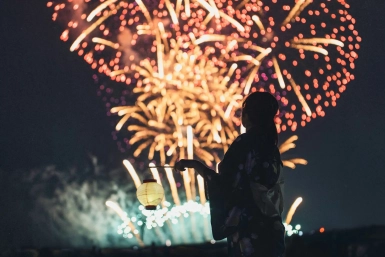More than 50 years have passed since the legendary Club Ai opened in 1971, ushering in the modern age of hostess clubs in Shinjuku’s infamous pleasure district. The core premise has hardly changed — in exchange for a modest premium, patrons are engaged by attractive young ladies in flirtatious conversations and antics. But almost everything else has. Social media platforms have given proprietors a new tool for publicity, and the lines have become increasingly blurred between hostess clubs, girls bars, snacks and other mizu-shobai establishments. As such, a new generation of concept cafes has begun to open up in Kabukicho catering to a more modern audience.
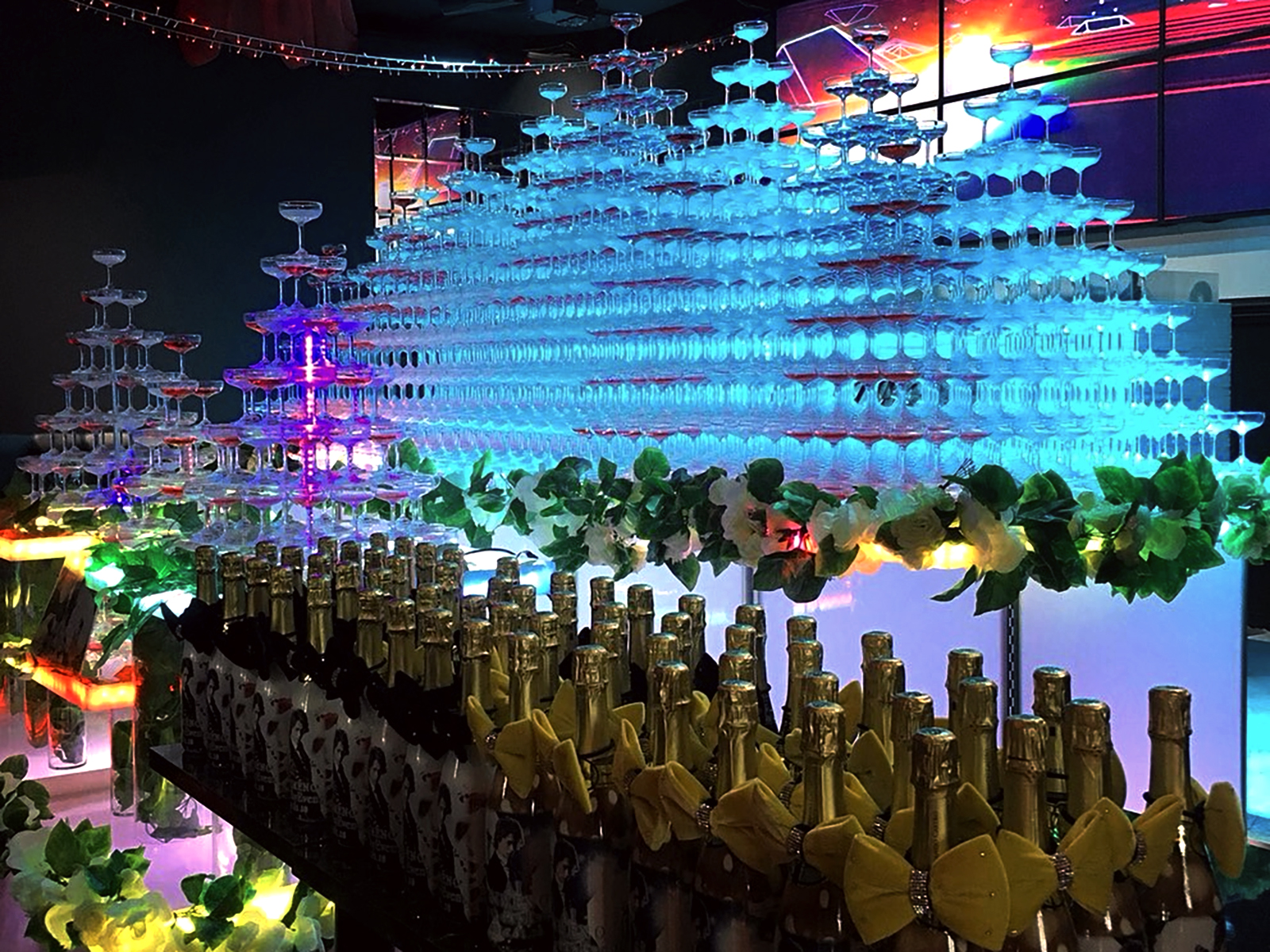
A spectacle of orishan glass towers.“Original Champagne,” a staple in all modern mizu-shobai venues in Kabukicho, are customized bottle designs allowing patrons to show their support of cast members — at a significant markup. Image courtesy of Gotham Tokyo.
What is a Concept Cafe?
For the uninitiated, one of the core differences between girls bars and hostess clubs in the past has been the idea of access. In exchange for a more lighthearted and casual experience (in both interactions and wallet damage), patrons generally were prohibited from exchanging phone numbers with working staff in girls bars. Nowadays, however, anyone can follow and DM a preferred cast member, and as a result, it has become common sense for staff to create new profiles on Instagram, TikTok and X (formerly Twitter) solely for promoting their cast personas and activities. This has generated new interest from audiences previously unable or unwilling to step foot into Kabukicho. As a result, establishments have been forced to compete with more than just the attractiveness of their cast.
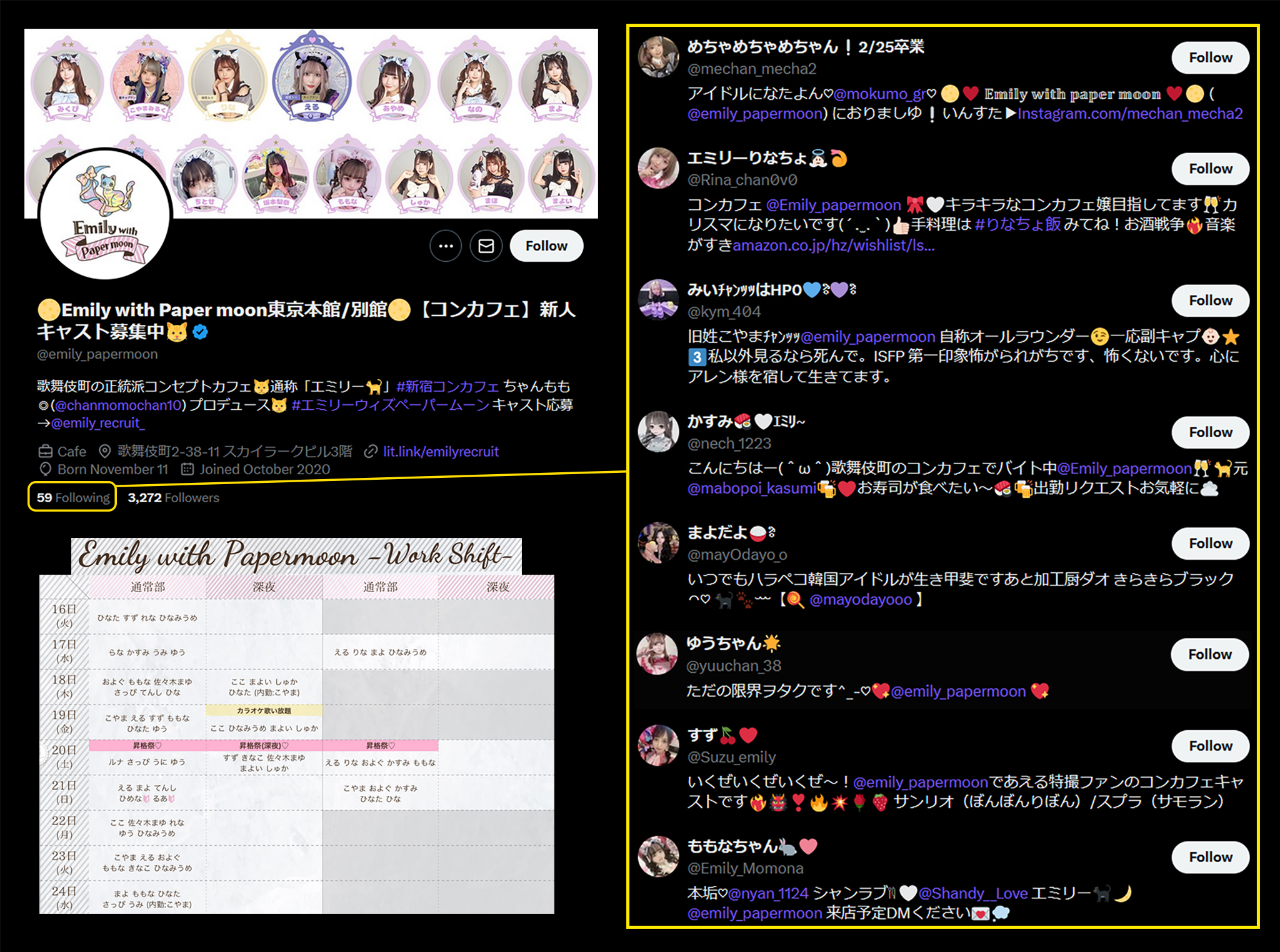
On X (formerly Twitter), venues operate an official account, follow their cast members and publish daily cast schedules, allowing patrons to check in advance who they could potentially be meeting on any given day by going to the “Following” tab.
Concept cafes are not a new idea — maid cafes have flourished in the past decade alongside the exploding Western interest in Akihabara culture — but key to newer concept cafes is the overarching cohesiveness of design. From interior decor to staff outfits, furnishings and layout, increasingly creative ventures have sprung up to provide attractive places of employment for those looking to provide charms outside of liquor tolerance. Many of these venues have two different shifts — pre- and post- last train — usually with different casts (and thus experiences) tailored to each type of crowd. Perhaps most strikingly, cast members are far more open about disclosing personal and lifestyle information compared to traditional girls bars, presumably as the visiting clientele are expected to have less sinister and dangerous ulterior motives.
Overall, these establishments bring a more personal touch to the experience and staff interactions. We will never know how much of it is real and how much is performance, but as 2023 mega-sensation Oshi no Ko has taught us about this element of subculture, “To lie is to love” — and much of both contribute greatly to the endless fascination of the scene both locally and abroad.
Below are a few standout venues from our initial foray into this world.

Emily With Paper Moon
Produced by Chanmomo, a DJ and member of idol group Band Ja Naimon!, this compact venue is full of soft charm and has similar aesthetics to a traditional maid cafe. Many staff are current or former underground idols, wearing outfits with cat ears in designated colors (a nod to the frequent idol group theme of color-tantou) and sitting on ground mats while interacting with customers. This ends up giving off the feeling of a house cat lying on the living room carpet, which, according to the cast, is more popular with female clientele than other establishments in the area.
Cafe Info
- Website
- Address: 3F Skylark Building, 2-38-11 Kabukicho, Shinjuku, Tokyo
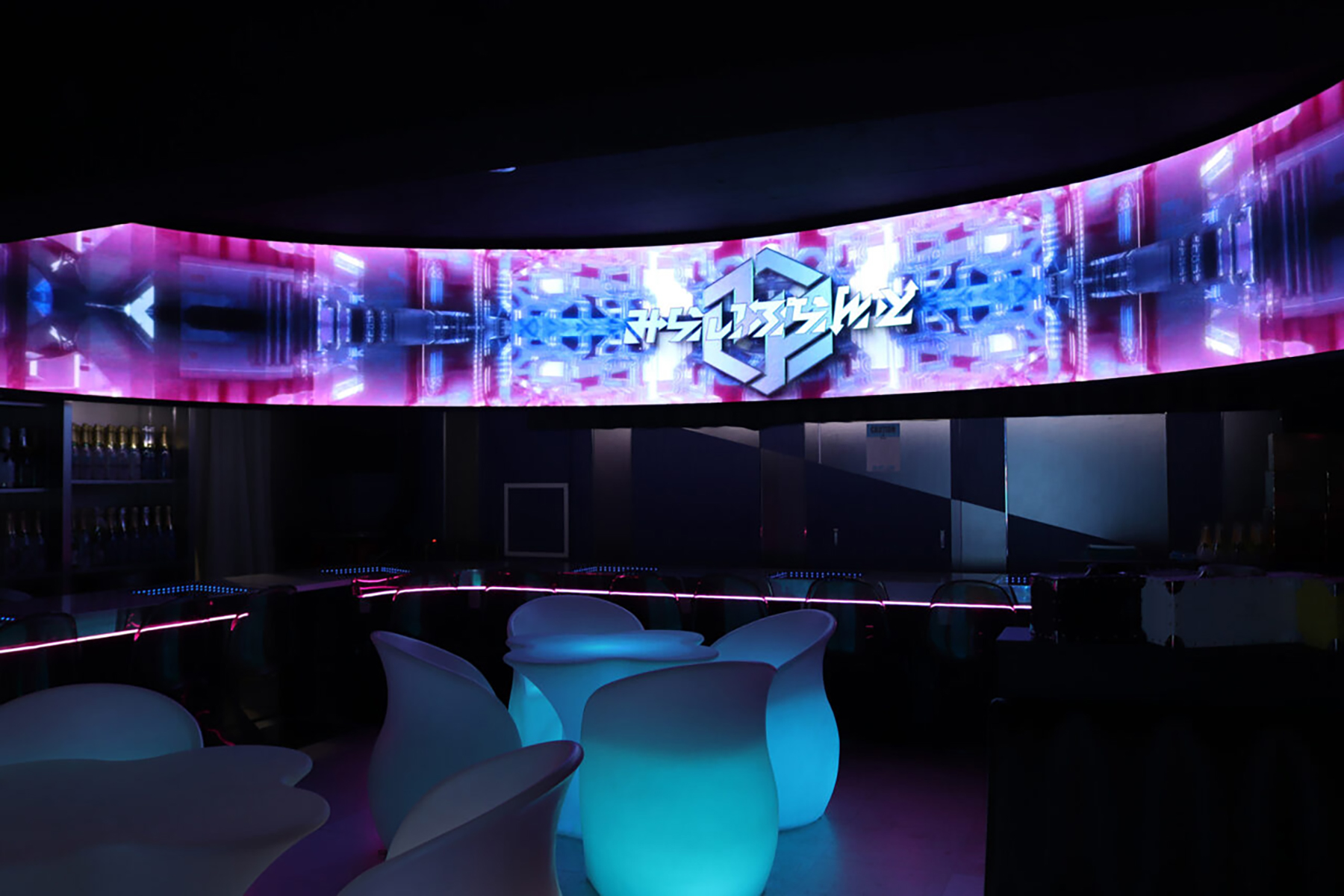
Mirai Plant
Enter a spacious venue full of blue and neon purple that draws inspiration from the layout of a spaceship cafeteria. You, the visiting clientele, have entered a “time slip” and have the opportunity to converse with staff representing people from the future. Although the level of role-play differs by individual, many of the girls working here have roots in Harajuku-based fashion and pursue other interests, such as underground bands, cosmetics and dance. Celebrating its third anniversary, Mirai Plant feels more like a traditional girls bar in interaction and experience.
Cafe Info
- Address: 4F Dai-6 Honma Building, 2-21-3 Kabukicho, Shinjuku, Tokyo
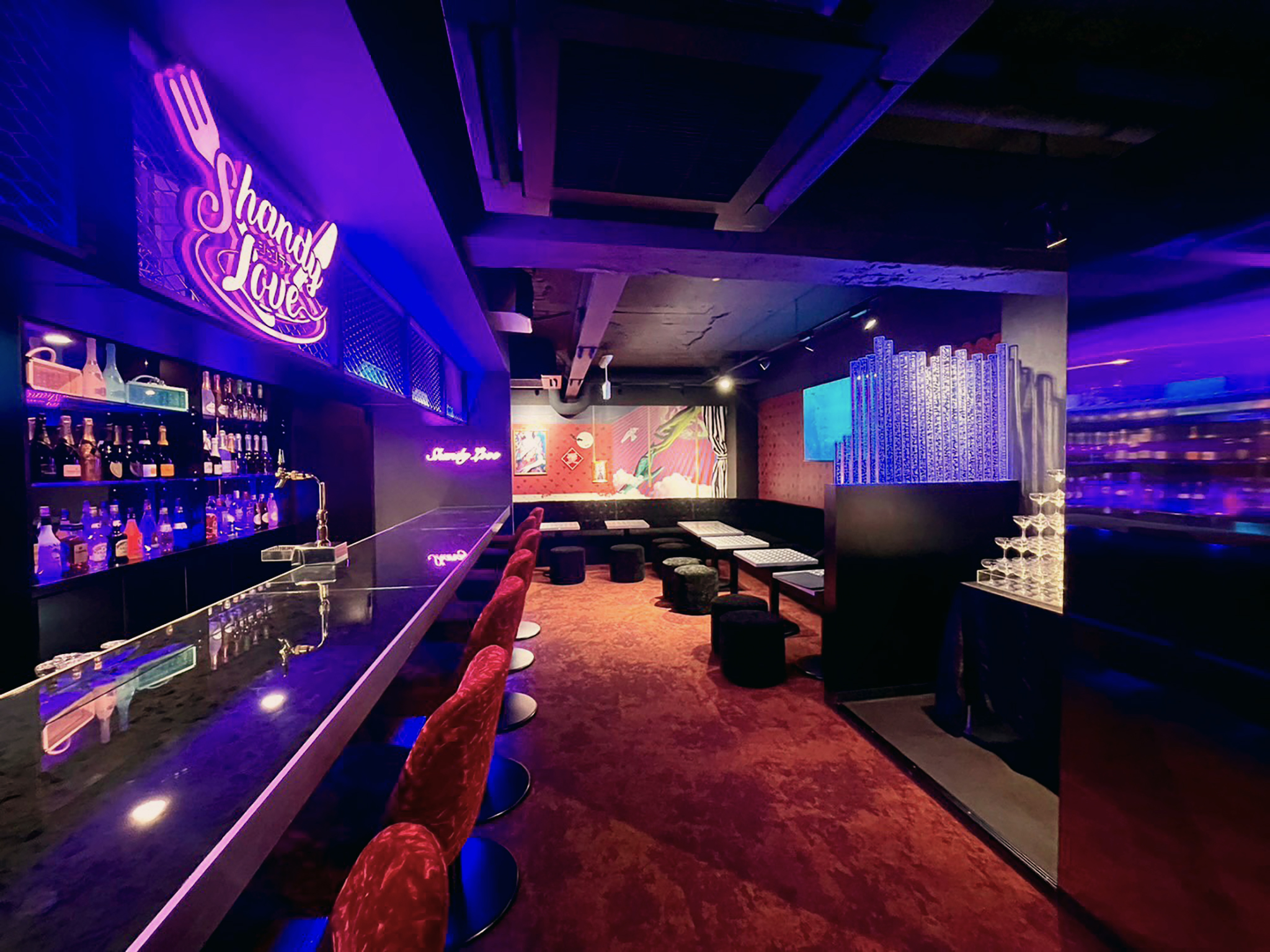
Shandy Love
One of the newer establishments in the area, this open kitchen-slash-bar prides itself on its food offerings. Offering more than just ketchup illustrations on your omurice (though that option is available), the staff here are hoping that the way to a customer’s heart really is through the stomach. According to one of the cast members, Shandy Love’s operating company has also ventured out internationally to Vietnam and Laos. One of her dreams is to do an international guest appearance.
Cafe Info
- X/Twitter
- Address: 3F Miyata Building, 1-4-12 Kabukicho, Shinjuku, Tokyo
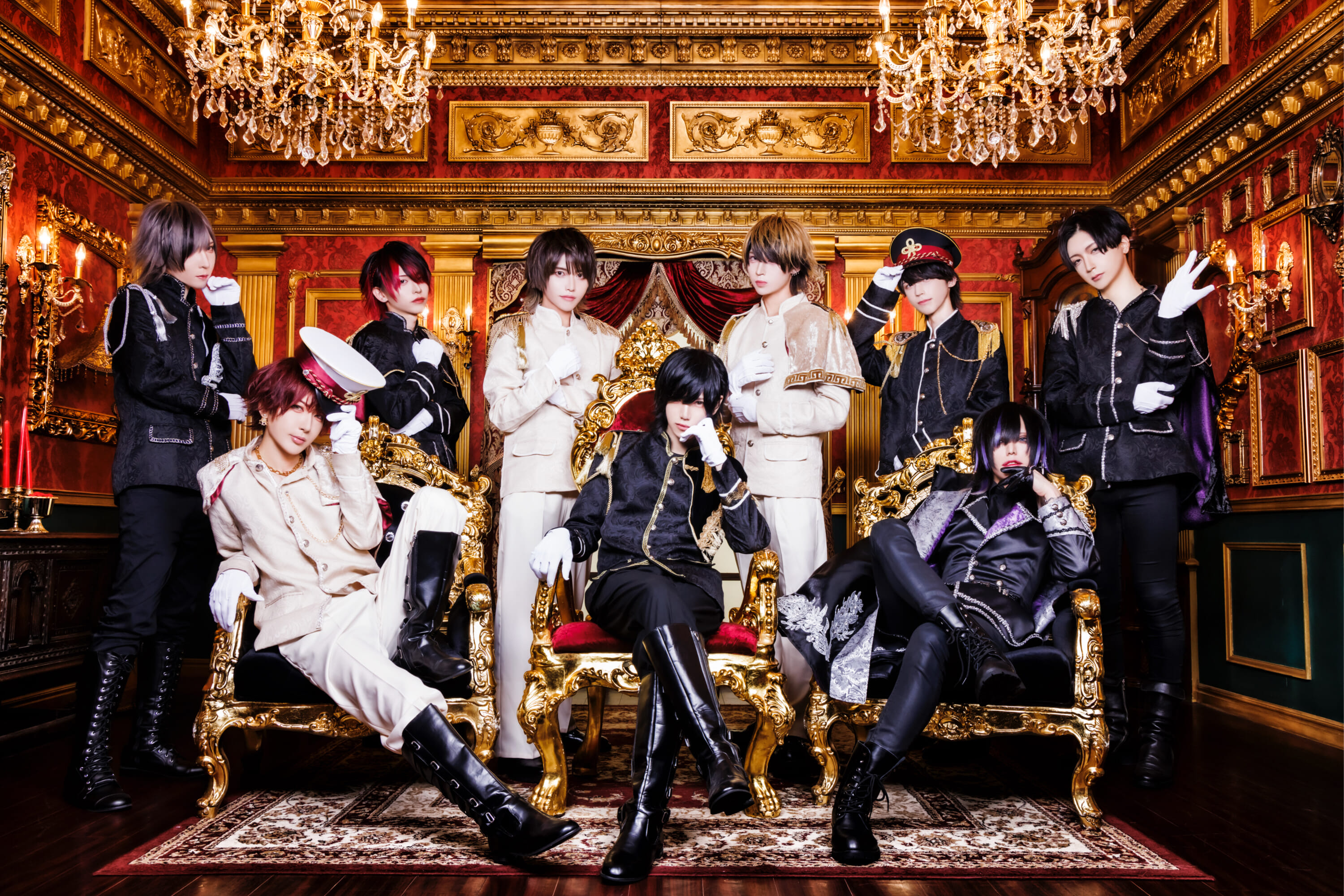
Rolo Prince
At this mencon, or concept cafe with men, the customer is the “queen” and therefore able to give orders to her handsome and loyal cast member “knights.” Drawing heavily from host club culture, the purchasing of a uniquely designed champagne bottle allows the designated knight to be “promoted” to the next military rank, with successive promotions triggering an instant change in outfit (such as additional insignia stars or, at a sufficient level, a completely different outfit). This adds a level of gamification to the system, drawing repeat clientele to its chivalrous fantasy.
Without a doubt, there is currently a lot of momentum in this space — within just the past half year, Kabukicho has become home to more than 10 newly opened or renovated concept cafes. More and more “cafe producers” — often successful ex-idols, musicians or influencers — have signed on to open venues or design elements of a concept cafe’s experience. Some locations have begun doing livestreams, with others hosting private special events for super VIPs. Although it’s difficult to measure the degree to which these establishments are impacting the overall Kabukicho culture, it seems likely that more exciting developments are just on the horizon.
Cafe Info
- Website
- Address: 4F G1 Building, 2-10-5 Kabukicho, Shinjuku, Tokyo
Where applicable, original image rights are property of respective individuals and venues.
Related Posts
- Maid Cafe Secrets Spilled by a Former Maid
- Tokyo’s Top 5 Most Astonishing Maid Cafes
- Muscle Girls Bar Creates a Welcoming Space for Fitness Fans
Updated On May 17, 2024

